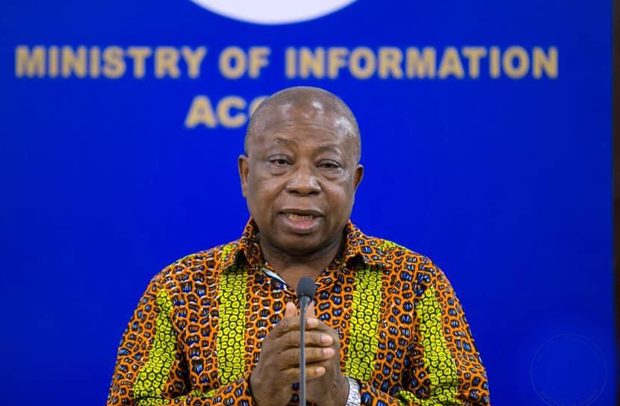Kwaku Agyeman-Manu
The Minister of Health, Kwaku Agyeman-Manu, has said the government’s contract with middleman Sheikh Ahmed Dalmook Al Maktoum to supply the country with Sputnik vaccines was born out of an emergency and panic situation.
According to him, even though he acknowledges the contract, which has been terminated, was an international transaction that required parliamentary approval, he relied on the Executive Instrument (E.I.) 61 for his action within the framework of the “dire need situation”, as a result of the second wave of the COVID-19 pandemic in the country.
There were fireworks at the Special Committee of Parliament probing the country’s procurement contract of the Sputnik vaccines as the minister was subjected to a barrage of questions, especially from the NDC side.
The minister indicated that he took ‘refuge’ under the emergency clauses that had been revoked in order to get vaccines at all cost for the country.
He, however, stated that he had plans to come back to Parliament to “regularise the contract by seeking the approval of Parliament after I had signed the contract,” but the NDC members on the committee disagreed.
Mr. Agyeman-Manu said he appreciated that the constitutional provision of Article 181(5) requires prior approval, “but by my frustration to try to get vaccines for us and in the heat of our second wave, I relied on the Executive Instrument 61 that was passed by Parliament.”
“I had the onus to procure the vaccines to vaccinate Ghanaians to protect our lives,” he asserted, and added “I must be very honest with you at the time my frustration was that fact that I seriously made that error and on the hindsight it will not happen any longer.”
The minister further stated that “those were not normal times and I was seriously in a situation that couldn’t make me think properly than the way I think right now that I will address myself to the situation.”
When pushed further that he could have sought parliamentary approval and achieved it for the same day if he had chanced that endeavour, the minister answered in affirmative and said he could have done that, “but the circumstances at the time were a little bit different.”
Mr. Agyeman-Manu revealed that he dealt with the private office of Sheikh Ahmed Dalmook Al Maktoum before frantic efforts were made to get the vaccines from the right source, intimating that “the best endeavours were not being done with the Russians.”
“When we started looking for vaccines we relied on COVAX and the African Medicine Supply Platform. These were not private citizens. But when efforts for COVAX failed, because India blocked their root, for export and African Medicine Supply Platform indicated that they could not supply any vaccine until August, I was then motivated to look at the private sector people to see if we can get the vaccines,” he explained.
On the $64.6 million, the minister said the amount was supposed to bring in some limited quantity of 3.4 million doses.
Background
Last Friday, the minister, appearing for the first time at the hearing of the committee, had disclosed that the government’s contract with middleman Sheikh Ahmed Dalmook Al Maktoum to supply the country with Sputnik vaccines had been terminated.
According to the minister, Al Maktoum, who claimed to be an agent of the Sputnik vaccine manufacturer in Russia, had said in a letter that his agency had “endured a series of challenges” that had unduly delayed the delivery of vaccines and “limited availability of stock for both component 1 and 2.”
The minister indicated that the letter, dated March 9, noted that the shortage of supply of vaccines was “a global issue and challenge being faced by majority vaccines suppliers.”
“Furthermore, we are working in collaboration with our partners and we will continuously deploy our best efforts to resolve the continuity of supplies for Ghana,” he read the letter further.
The minister continued, “We wish to terminate the vaccines supply agreement. We hope that when the supplies are restored we will be able to re-engage on new terms and follow the due process for that purpose.”
He added that “they are not just terminating it yesterday. After they have signed the contract, they gave us two weeks to supply the first 300,000 we ordered, based on our ability to give them (Maktoum) letters of credit as part of the terms of the agreement.”
Mr. Agyeman-Manu said Ghana’s letters of credit were delayed and got to Maktoum agency at a later date and “they came back after they had confirmed that they had run out of stocks.”
“Russia was going to supply them more stocks and they would supply us within two weeks. After two weeks we enquired and they said they still had not got the supply,” he further explained.
“So we started engaging them that if that is the matter they should permit us to amicably withdraw from the contract so that we can do something different to find vaccines for ourselves,” he added.
By Ernest Kofi Adu, Parliament House


